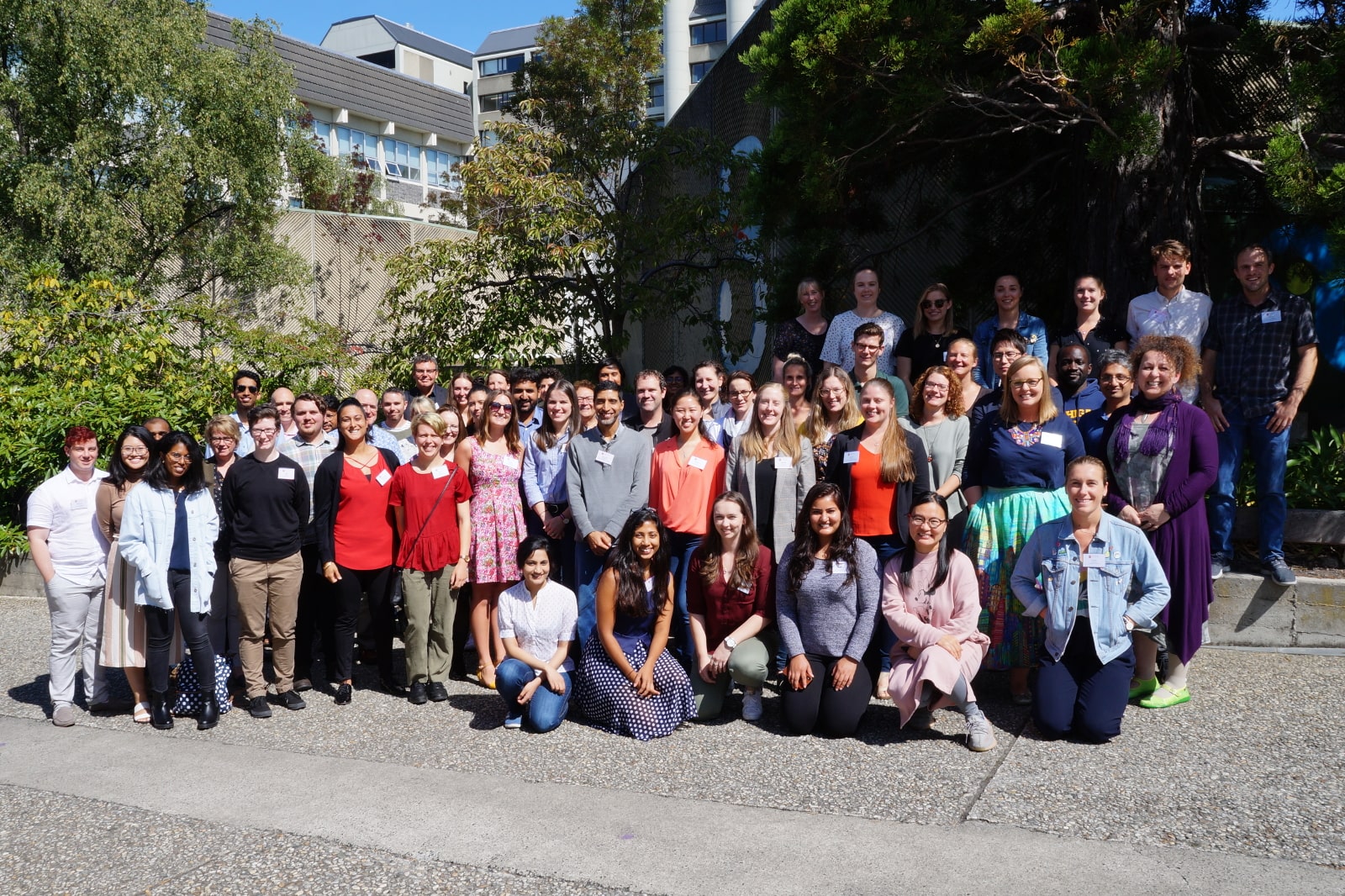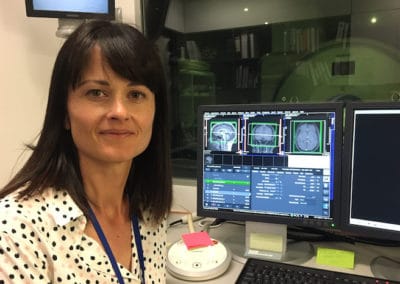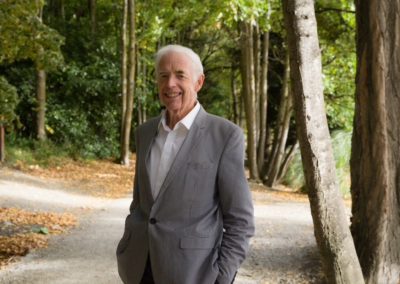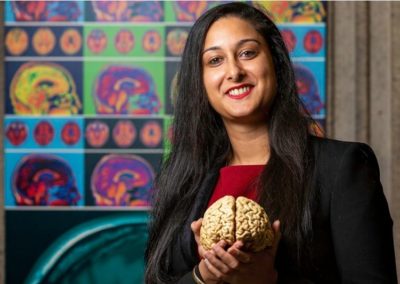At Brain Research New Zealand, we invest heavily in the training and support of our early career researchers (ECRs) – our future neuroscience and clinical workforce. Throughout the year, we offer our emerging leaders training, outreach and networking opportunities, scholarships, mentors, and more, to sharpen their skills and develop their talent.
On February 11-12, we started the year with a highlight of our calendar – our annual ECR workshop. Over 50 ECRs came together at the University of Otago for two days packed with exciting talks, discussions, and interactive sessions.
Prof Glenda Halliday from the University of Sydney kicked off the event as our first keynote speaker and shared learnings from assessing neurodegenerative diseases through research on the human brain.
We got some glimpses into the field of Artificial Intelligence with Prof James Maclaurin discussing what AI can teach us about thought and thinking.
In a very special session, Dr Nick Cutfield, Director of our Dementia Prevention Research Clinic in Dunedin, gave us insights into Parkinson’s Disease in a clinical setting. He brought along one of his patients living with Parkinson’s and her husband, who shared with us the realities of living with this disease.
Prof Stephen Robertson from the University of Otago gave some useful advice for growing science in the New Zealand research environment, and Laurie Winkless followed with 20 practical tips for communicating science.
In a very interactive workshop session, our ECRs were taken through real scenarios, and discussed ethics and making big decisions in health and science.
Dr Makarena Dudley presented “Te Oranga o te Roro”, an app for dementia awareness and prevention through risk reduction, which she is currently developing in a collaboration with AUT and MedTech.
In a session on “Using the F-word in science”, BRNZ Co-Director Prof Cliff Abraham delved into some failures of his career and discussed with BRNZ members Assoc Prof Louise Parr-Brownlie, Dr Helen Murray, Dr Malvindar Singh-Bains and Prof John Reynolds, how to deal with failure. In the end, Cliff concluded, “Failure is an outcome, not a personal characteristic.”
Our emerging researchers also had the opportunity to present their research in a 3-minute Thesis Competition. 8 ECRs battled it out on stage, with Sophie Mathiesen taking out first place for her impressive talk “Do as the Greeks do: Using Trojan Horses to infiltrate the brain.” Second place went to Aimee Chu (“The Effects of Secreted Amyloid Precursor Protein-alpha on Astrocytes in Alzheimer’s Disease”) and third to Usman Ghani (“EEG correlates of task difficulty: development pf an objective measure of cognitive workload”). Congratulations to all the winners and participants!
Once again, our workshop provided a great opportunity for networking and foster collaboration across our institutions. Prof John Reynolds, Chair of the BRNZ Early Career Advisory Group, says that is has been great “to see our ECRs come together year after year and to see them grow individually, but also as a research family”. And indeed, seeing what our emerging researchers are capable of, we do not doubt that the future of our neuroscience is in good hands.
And what do they have to say about the workshop?
ECR Voices: Conference Impressions
Jenny Hamilton (University of Canterbury)
The BRNZ ECR workshops have always been a safe space for young researchers to develop relationships with other like-minded researchers, and this year was no different. This year’s programme consisted of a wide range of talks, with Glenda Halliday’s talk on neurodegenerative diseases being a highlight for me. The topics ranged from clinical Parkinson’s, disease progression in the human brain, communicating our research and what Artificial Intelligence can teach us, highlighting the wide reach of the BRNZ. Competing in the Thesis in Three competition was a great push out of my comfort zone to help me communicate my PhD research to my peers. Although, trying to incorporate the wonderful science communication advice from Laurie Winkless’ “Science Stories” talk into my presentation for the next day was a challenge. Overall, the 2020 ECR workshop was a great space to meet peers, learn about the current state of neuroscience in New Zealand and uncover the hidden skills we all have as speed cup stackers!
Dr Amy McCaughey-Chapman (University of Auckland)
I thoroughly enjoyed the 2020 BRNZ ECR workshop which just took place in Dunedin. Overall the workshop was very well organised and ran smoothly. The dinner at Glenfalloch was a particular highlight as the food was delicious and the venue allowed for good networking. The “need for speed” ice-breaker was particularly fun, created a sense of teamwork and involved some slight physical activity which was welcome after a long day of sitting. Now to the science aspect, the programme covered a range of topics from neurodegenerative diseases, artificial intelligence to science communication. I particularly appreciated the opportunity to hear from a patient with Parkinson’s disease and learn about the daily difficulties they deal with. There was an interactive session on ethics, which was not only interesting but eye-opening and allowed for whole-room discussions. Lastly, the panel discussion about “failures” was relevant and I feel I benefited from each panellist’s experience because they covered a range of different career stages from Research Fellow to Professor. BRNZ put on yet again a great ECR workshop and I hope these will be continued annually.
Dr Conor Underwood (University of Otago)
As a post-doctoral neuroscientist and newcomer to the New Zealand research environment, I enrolled to attend this year’s ECR workshop with the ultimate aim of enhancing my career progression in New Zealand. I found the seminar and social program to be superbly structured; the seminars were very diverse and engaging, while the dinner was informal and facilitated many interesting discussions with neuroscientists I had only just met. Particular highlights for me were the opening and closing talks of the workshop. Prof. Glenda Halliday opened the workshop with the story of her successful research career; it was most valuable to hear Prof. Halliday reflect on her thinking around the various experiments she performed throughout her career. The workshop closed with a panel discussion regarding the ‘F word’ (failure) in science; I found it reassuring to hear that members of the panel have often encountered failure and also found it valuable to hear of they dealt with it.



